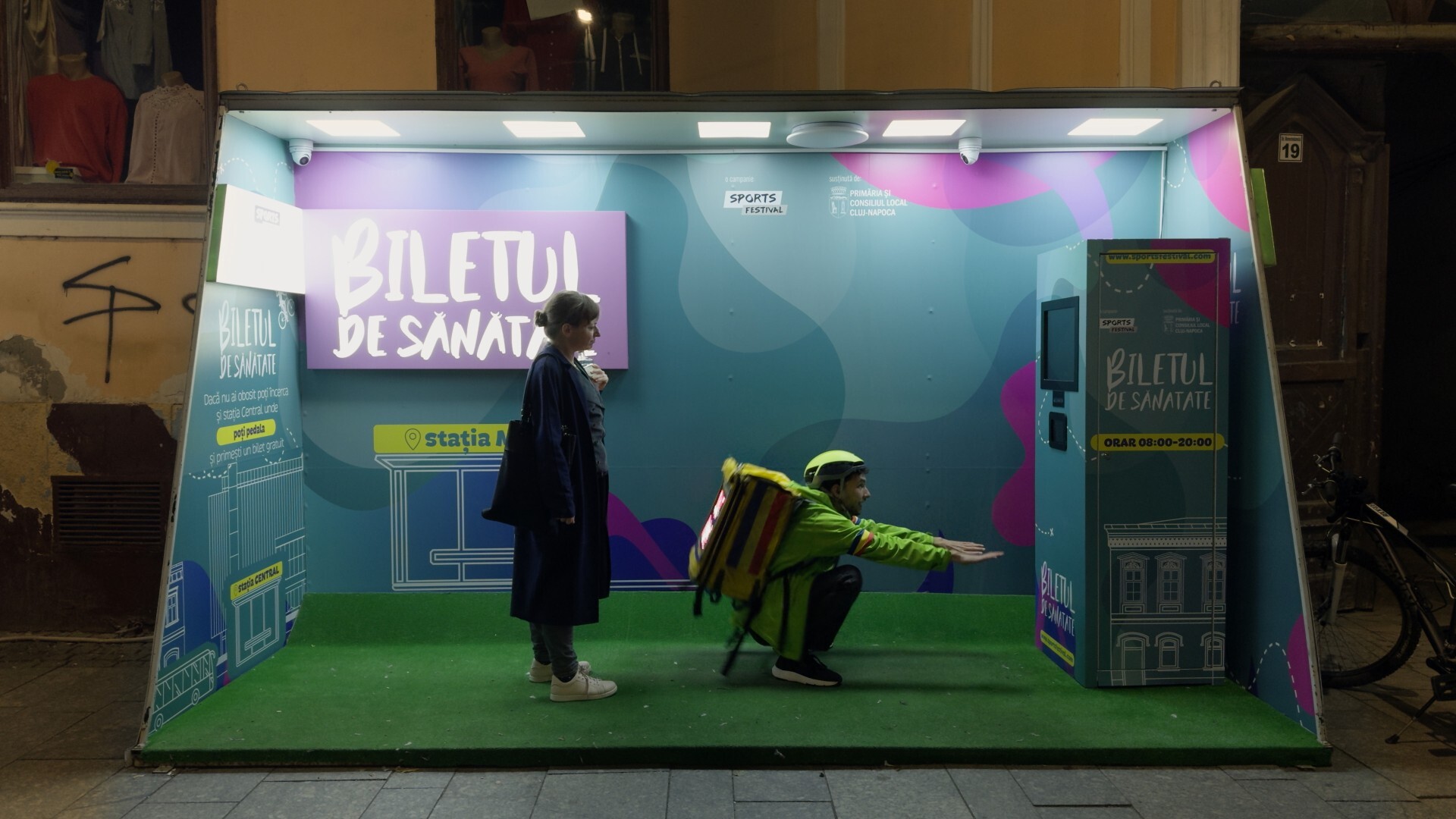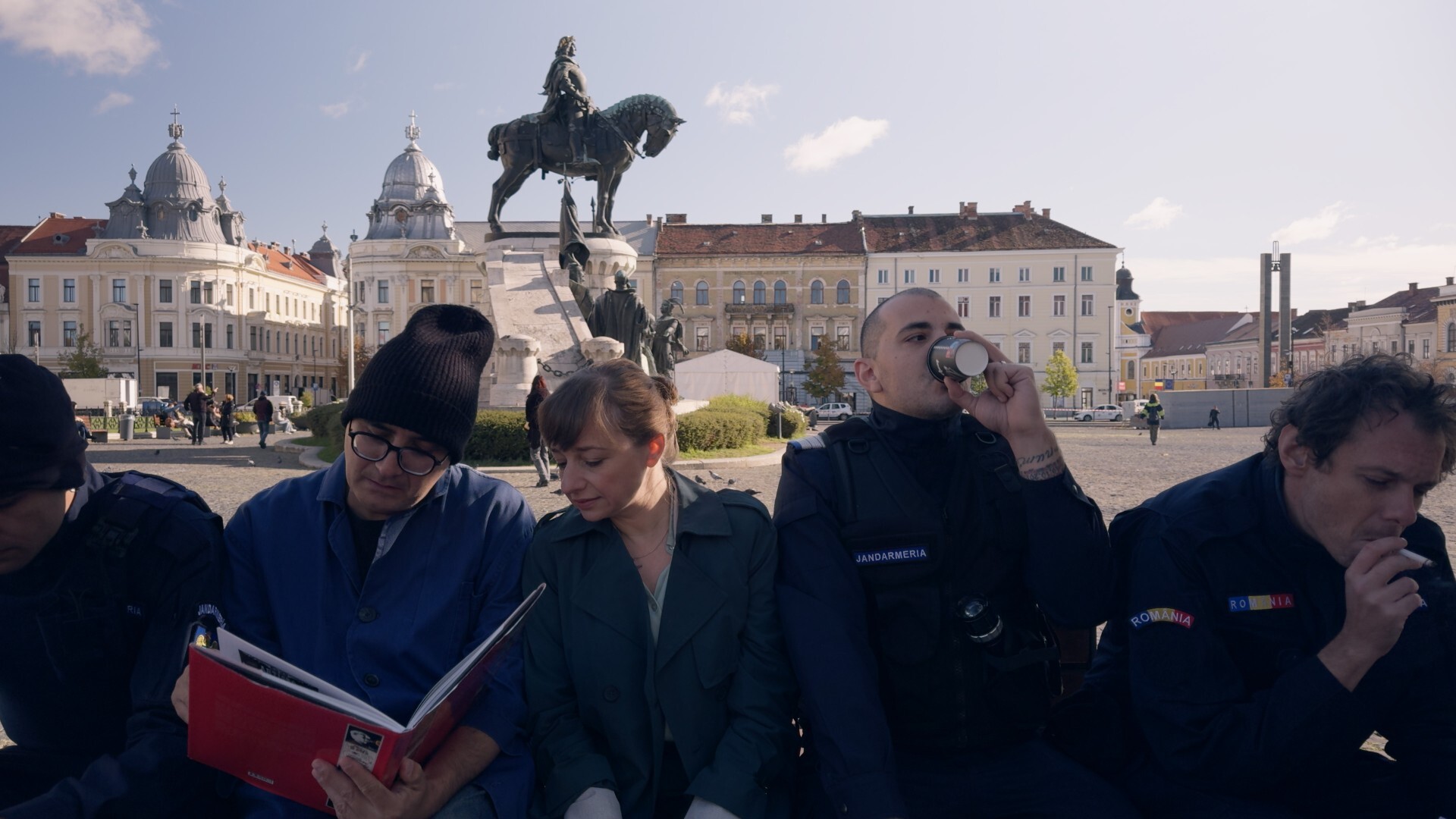Director: Radu Jude
Writer: Radu Jude
Stars: Eszter Tompa, Annamária Biluska, Marius Damian
Synopsis: In the capital of Transylvania, Cluj, Orsolya serves as a bailiff. She has to evict a homeless guy from a cellar one day, which has disastrous results and sets off a moral problem that Orsolya must try to resolve.
When I finished watching Do Not Expect Too Much from the End of the World at the 2023 New York Film Festival, I immediately thought that Radu Jude was becoming a protegee of Jean-Luc Godard in his own right and manner. Jude, like Godard, is not shy about speaking his mind about whatever people ask him about or asking himself questions about modern society and its inhabitants. The frustrations of the pandemic era, labeling, and privacy in Bad Luck Banging, or Looney Porn. The intellectuality of Europeans, influencer culture, and Romania’s government and its unwillingness to change in the aforementioned picture. The historical amnesia that societies have regarding the racial and ethnic exterminations of minorities in I Do Not Care if We Go Down in History as Barbarians.
All of his features have that bravery and boldness that Godard contained; one might even say that Jude, in terms of politics and thematic exploration, is far more ballsy than the French cinema legend. But after watching his latest work, Kontinental ‘25 (screening in competition at the 2025 Berlin International Film Festival), he is becoming one of those essential filmmakers of our time–one above all, with his ability to portray the world around us in all of its coldness, ugliness, and ignorance. Many contemporary directors hold a mirror to society and make us think about how we can be better humans. However, none have Jude’s creativity, work ethic, and panache. In his latest experiment, the Romanian filmmaker tackles, as usual, an array of topics that are currently plaguing the world–generational racism, the housing crisis, the Russia-Ukraine war, and our post-pandemic melancholy–through intricate observations.
Kontinental ‘25 begins with the drowning guilt and existential crisis of Orsolya (Eszter Tompa), a woman living her daily life as a bailiff in Cluj, a city in northeastern Romania. She is overseeing the eviction of a homeless man named Ion (Gabriel Spahiu), who has been staying in the basement of an abandoned building for a long while. He squats on the bottom floor with nowhere to go, as there haven’t been any repercussions. Until now, the building has been sold to some real estate developers. So, Ian is forced to leave the premises. But the man does not want to comply with Orsolya’s orders. Hence, he decides to kill himself in the basement he has been lodging in. This leaves the bailiff completely traumatized and riddled with guilt. Why? Because she was the one who ordered the eviction.
As cinephiles might have noticed with the film’s title and cold opening, Radu Jude references Roberto Rossellini’s 1951 Europa ‘51. In the film, Ingrid Bergman’s character, Irene Girard, starts to devote herself to ending the suffering of the poor after her young son commits suicide. The film follows Irene as she leans towards humanitarianism to help those around her, especially ones in need. Rosselinni explores how we can make the world a better place if we stick together and assist the people who are rejected by society. Meanwhile, Jude sees how everything has changed and that our decisions have less humanitarian sensibility. One person can try to help, but those around them do not bother to do so. This is Orsolya’s predicament in Kontinental ‘25.
Her morals fracture entirely, leaving behind a body slowly losing its vivacity amidst the trauma caused by such an incident. Even though she tried to help Ion by extending the eviction a couple of times, Orsolya still mourns and feels culpable about his death. The story then takes a loose approach by focusing on conversations and dialogue rather than actual events transpiring. Jude utilizes this cold open to pave the way for what he wants to explore, which is a picture of our constant questioning and fluctuating ethics, both from religious backgrounds and past experiences. From this point on, in whichOrsolya finds herself responsible for Ion’s suicide and has some kind of existentialist crisis, Kontinental ‘25 shows us the daily lives of these characters, where the incident (or their opinions about it) shift their actions, responses, and expressions.
Jude’s characters are often complex and vulnerable in one way or another; they continually grow or plummet into their doubts, self-questioning, and life struggles. Most importantly, they are vessels for the philosophical and ethical notions that Jude wants the viewer to ponder. Some gags, quips, and juxtapositions heighten the film’s sense of reality to some degree, although without the potency and cinematic piquancy that Do Not Expect Too Much from the End of the World contained in spades. One of the faults Kontinental ‘25 has is that it feels like Jude’s work is restrained in experimentation and political ruminations. However, his commitment and leniency towards demonstrating essential topics and subjects currently plaguing Romania without sugar coating or cushioning them adds to the film’s effectiveness and staying power.
No subtext or metaphors exist, only cold-face truths through evocative, daring screenwriting. It gives Kontinental ‘25 a sense of urgency and importance, never leaving these societal critiques to lose meaning amidst the story’s many narrative beats. Another filmmaker would have had a different approach to the film; they would have depended on allegories to have some effectiveness. And while Jude has done much in the past–and to his benefit–the departure to do that in his latest makes the film more contemplative. It is challenging for some viewers to engage with for the entire runtime. Each scene contains a specific theme and commentary–almost like a vignette, although the scenes connect entirely–which is tricky to grapple with initially since all of them are crucial. However, it rewards those who are patient with a film that is tightly woven and substantial.







